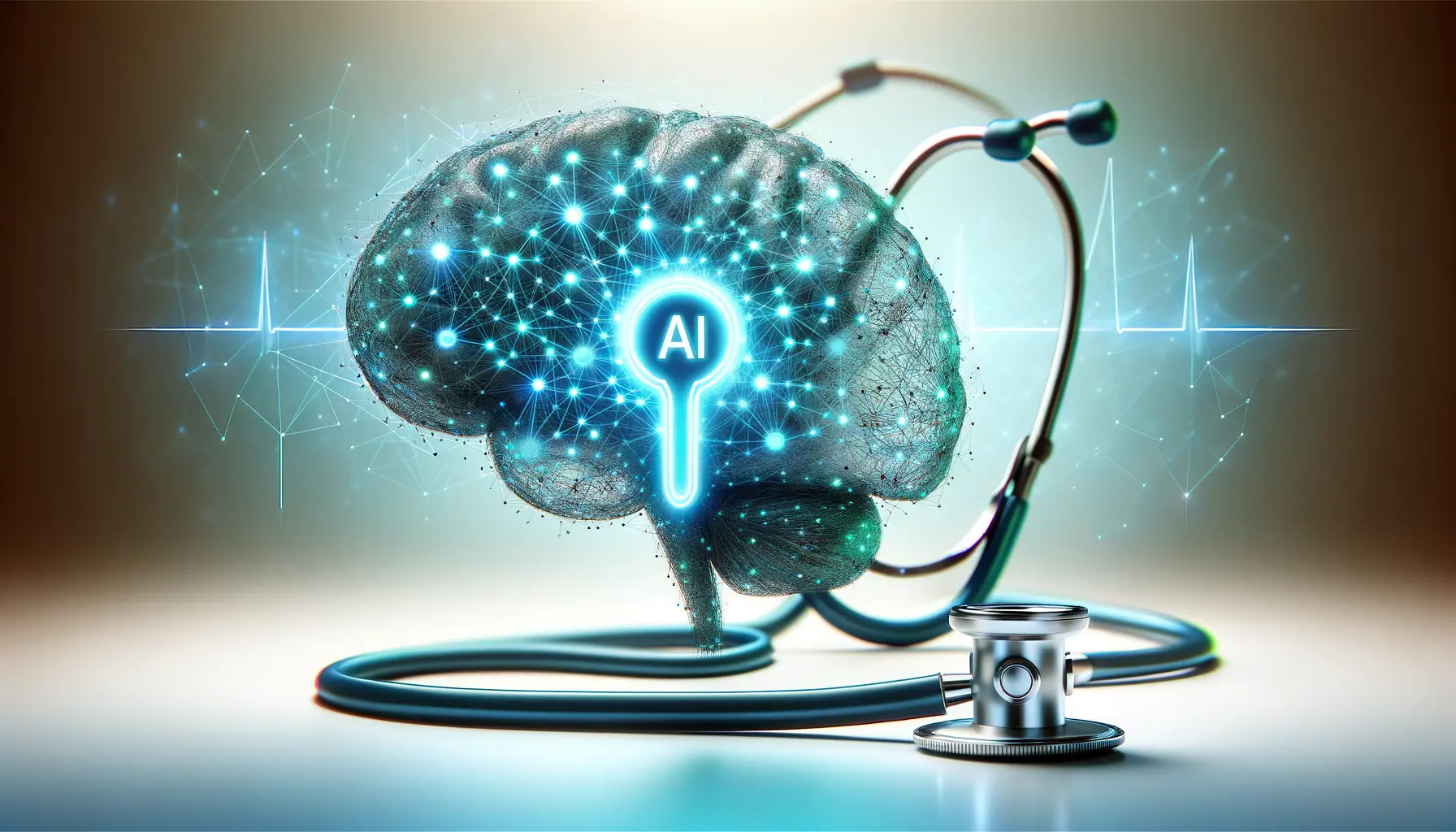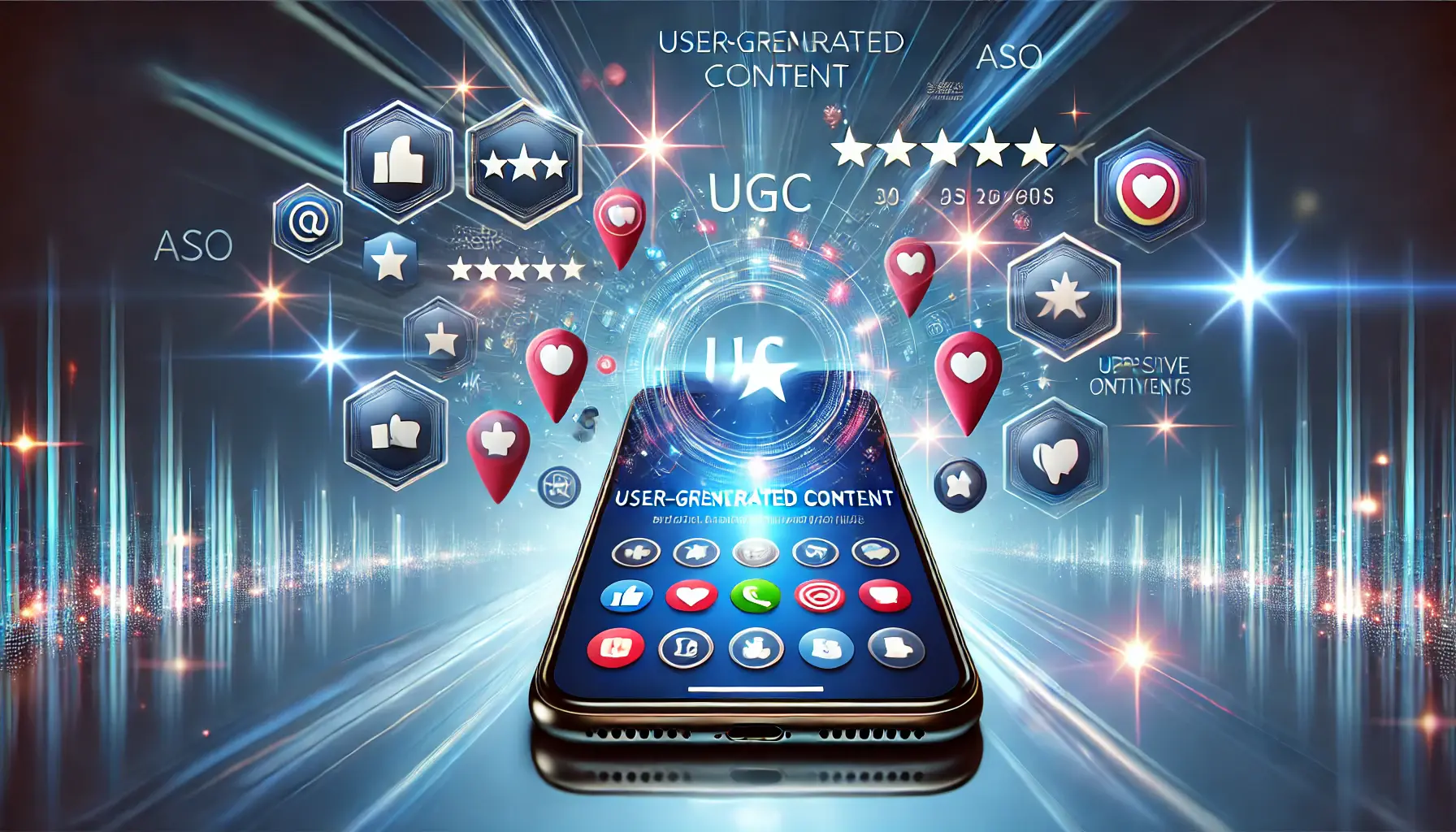The integration of artificial intelligence (AI) into the realm of healthcare search engine optimization (SEO) marks a transformative era for digital marketing strategies within the medical field.
As healthcare providers and medical marketers strive to enhance their online visibility and patient engagement, the utilization of AI-generated content has emerged as a pivotal tool.
This innovative approach not only streamlines content creation processes but also significantly improves the quality and relevance of information available to patients online.
However, the adoption of AI in crafting healthcare content comes with its unique set of challenges and opportunities.
The primary objective remains clear: to produce content that is not only SEO-friendly but also accurate, informative, and engaging for the target audience.
This delicate balance between optimization and quality assurance underscores the importance of understanding AI’s capabilities and limitations within healthcare SEO.
- The Evolution of AI in Healthcare Content Creation
- Challenges and Solutions in AI-Generated Healthcare Content
- AI and Patient Engagement: Personalizing Healthcare Content
- SEO Best Practices for AI-Generated Healthcare Content
- Future Trends: AI’s Expanding Role in Healthcare SEO
- Integrating AI into Healthcare Content Strategy
- AI in Healthcare SEO: Ethical Considerations and Best Practices
- Embracing the Future: AI-Generated Content in Healthcare SEO
- Key Takeaways and Best Practices
- FAQs on AI-Generated Content Quality in Healthcare SEO
The Evolution of AI in Healthcare Content Creation
Understanding AI’s Role
Artificial intelligence, particularly in the form of machine learning algorithms and natural language processing, has revolutionized the way content is generated across various sectors, including healthcare.
By analyzing vast datasets and identifying patterns, AI tools can produce content that closely mimics human writing styles.
This capability enables healthcare organizations to maintain a consistent flow of high-quality content, addressing a wide range of topics from disease prevention to treatment options.
Moreover, AI-generated content can be tailored to reflect the latest medical research and guidelines, ensuring that the information provided is both current and medically accurate.
This aspect is crucial in healthcare, where outdated or incorrect information can have serious implications for patient care and outcomes.
Enhancing SEO with AI-Generated Content
The primary goal of SEO is to improve a website’s visibility in search engine results pages (SERPs), driving more organic traffic to the site.
AI-generated content contributes to this objective by optimizing articles, blog posts, and web pages with relevant keywords and phrases.
However, beyond mere keyword insertion, AI tools are now capable of creating content that genuinely adds value to readers, thereby aligning with Google’s emphasis on content quality and user experience.
AI’s ability to analyze user intent and search trends allows for the creation of content that not only ranks well but also meets the specific needs and questions of the target audience.
This user-focused approach not only enhances SEO performance but also fosters trust and credibility among patients seeking reliable healthcare information online.
The integration of AI in healthcare SEO represents a significant advancement in digital marketing, offering opportunities to improve content quality, relevance, and engagement.
Challenges and Solutions in AI-Generated Healthcare Content
The journey of integrating AI into healthcare content creation is fraught with challenges that necessitate careful navigation.
While the potential benefits are immense, the path is not devoid of obstacles.
Recognizing these challenges is the first step towards harnessing AI’s full potential in healthcare SEO without compromising content integrity or audience trust.
One of the primary concerns is ensuring the accuracy and reliability of AI-generated content.
In the healthcare domain, where information can directly impact patient health and decision-making, accuracy is non-negotiable.
Additionally, maintaining a human touch in content that addresses sensitive health issues is crucial for patient engagement and trust.
Ensuring Medical Accuracy and Compliance
- Implement rigorous review processes involving healthcare professionals to validate AI-generated content for medical accuracy and compliance with current guidelines.
- Leverage AI tools that are specifically designed for healthcare content, incorporating databases that are regularly updated with the latest medical research and guidelines.
Maintaining a Human Touch
- Combine AI-generated drafts with human editing to infuse personal experiences, empathy, and the nuanced understanding that patients seek in healthcare content.
- Use AI to generate content frameworks or outlines, while relying on healthcare professionals to provide the final touches, ensuring the content resonates on a personal level with the audience.
Overcoming SEO Optimization Challenges
- Adopt AI tools capable of semantic understanding and integration of long-tail keywords to create content that aligns with user search intent and queries.
- Regularly update content strategies based on AI-driven analytics and search engine algorithm changes to stay ahead in SERP rankings.
The successful integration of AI in healthcare content creation hinges on a balanced approach that combines technological efficiency with human oversight and expertise.
AI and Patient Engagement: Personalizing Healthcare Content
The advent of AI in healthcare SEO extends beyond mere content creation; it plays a pivotal role in enhancing patient engagement through personalized content strategies.
In an era where personalized care is becoming the norm, AI’s ability to analyze user behavior and preferences offers a unique opportunity to tailor content to individual patient needs, thereby significantly improving engagement rates.
Personalization in healthcare content not only helps in addressing the specific concerns and questions of patients but also fosters a sense of trust and loyalty towards healthcare providers.
By delivering content that is relevant and meaningful to each user, healthcare organizations can enhance patient satisfaction and encourage proactive health management.
Strategies for Content Personalization
- Utilize AI-driven analytics to segment audiences based on demographics, search behaviors, and interaction patterns with previous content.
- Develop personalized content pathways that guide patients through their healthcare journey, offering tailored advice, recommendations, and resources at each step.
Improving User Experience with AI
- Incorporate AI chatbots and virtual assistants on healthcare websites to provide instant, personalized responses to patient inquiries, enhancing user experience and engagement.
- Leverage AI to optimize website navigation and content layout, ensuring that users can easily find the information they need without feeling overwhelmed.
Measuring Engagement and Refining Strategies
- Employ AI tools to track engagement metrics such as time spent on page, bounce rates, and conversion rates for personalized content, providing insights into what resonates with the audience.
- Continuously refine content strategies based on AI-generated insights, adapting to changing patient needs and preferences to maintain high levels of engagement.
Leveraging AI for personalized healthcare content not only enhances patient engagement but also positions healthcare providers as trusted advisors in the patient’s health journey.
SEO Best Practices for AI-Generated Healthcare Content
While AI offers innovative solutions for content creation in healthcare SEO, adhering to SEO best practices is crucial to ensure the effectiveness and visibility of this content.
The dynamic nature of search engine algorithms requires a strategic approach to AI-generated content, ensuring it meets the standards expected by search engines and provides value to the audience.
Implementing SEO best practices for AI-generated content involves a combination of technical optimization, quality content creation, and user experience enhancement.
These practices ensure that healthcare providers can leverage AI to improve their online presence while maintaining the integrity and trustworthiness of their digital content.
Optimizing for Search Engines
- Ensure AI-generated content is structured with proper header tags, meta descriptions, and keyword optimization to improve its discoverability and relevance in search engine results.
- Use AI to identify and integrate long-tail keywords and semantic variations that match user search intent, enhancing content visibility and relevance.
Ensuring Content Quality and Relevance
- Maintain high content standards by incorporating accurate, up-to-date medical information that addresses the needs and questions of the target audience.
- Regularly review and update AI-generated content to reflect the latest medical guidelines and research, ensuring the content remains relevant and authoritative.
Enhancing User Experience
- Utilize AI to analyze user behavior and preferences, optimizing website layout, navigation, and content presentation for a seamless user experience.
- Implement responsive design and fast loading times for AI-generated content pages, ensuring accessibility and engagement across all devices.
Monitoring Performance and Making Adjustments
- Leverage AI-driven analytics tools to monitor the performance of AI-generated content, tracking metrics such as traffic, engagement, and conversions.
- Use insights from performance data to continuously refine and optimize content strategies, ensuring they align with SEO best practices and audience expectations.
Adhering to SEO best practices for AI-generated healthcare content ensures that healthcare providers can effectively leverage AI technologies to enhance their online visibility and patient engagement.
Future Trends: AI’s Expanding Role in Healthcare SEO
The landscape of healthcare SEO is poised for further transformation as AI technologies continue to evolve and integrate more deeply into content creation and optimization processes.
The future trends in AI within healthcare SEO suggest a move towards more sophisticated, personalized, and interactive content strategies that cater to the dynamic needs of patients and healthcare consumers.
As AI becomes more advanced, its role in healthcare SEO is expected to expand, offering new opportunities for healthcare providers to enhance their digital presence and patient engagement strategies.
These future trends highlight the importance of staying ahead in the digital curve to leverage AI’s full potential in healthcare marketing and SEO.
Advanced Personalization and Predictive Analytics
- AI will enable even more sophisticated personalization of healthcare content, using predictive analytics to anticipate patient needs and preferences, and delivering tailored content that addresses individual health journeys.
- Healthcare providers will leverage AI to analyze vast amounts of data, including search behaviors and interaction patterns, to create highly personalized and relevant content strategies.
Interactive and Conversational Content
- The integration of AI-powered chatbots and virtual assistants into healthcare websites will become more prevalent, offering real-time, interactive content experiences that engage users and provide instant support.
- Conversational AI will transform the way healthcare content is delivered, making it more accessible and engaging for users through natural language interactions.
Enhanced Content Quality with AI-Assisted Research
- AI’s ability to process and analyze large datasets will be used to enhance the quality of healthcare content, incorporating the latest medical research and evidence-based information into content creation processes.
- Healthcare SEO strategies will increasingly rely on AI to ensure content accuracy, relevance, and authority, aligning with the expectations of both search engines and healthcare consumers.
Automation of SEO Tasks
- AI will automate routine SEO tasks, such as keyword research, content optimization, and performance tracking, allowing healthcare marketers to focus on strategy and creative content development.
- This automation will streamline SEO workflows, making it easier for healthcare providers to maintain a strong online presence and adapt to changing SEO landscapes.
The expanding role of AI in healthcare SEO represents a significant shift towards more personalized, interactive, and high-quality content strategies, driven by advanced technologies and data analytics.
Integrating AI into Healthcare Content Strategy
As artificial intelligence becomes increasingly central to healthcare SEO, integrating AI into a comprehensive content strategy is essential for healthcare providers looking to enhance their digital presence.
This integration involves not just leveraging AI for content creation, but also utilizing AI-driven insights to inform content planning, execution, and optimization.
The goal is to create a synergy between AI capabilities and human creativity to produce content that is engaging, informative, and optimized for search engines.
Successfully integrating AI into healthcare content strategy requires a thoughtful approach that balances the efficiency and scalability of AI with the nuanced understanding and empathy of human content creators.
This balance ensures that the content not only performs well in search engine rankings but also genuinely serves the needs and interests of patients and healthcare consumers.
Developing a Data-Driven Content Plan
- Use AI tools to analyze search trends, user queries, and engagement data to identify topics that are most relevant and valuable to your target audience.
- Incorporate AI-driven keyword research to refine content themes and focus areas, ensuring alignment with search intent and optimization opportunities.
Creating AI-Enhanced Content
- Leverage AI to generate initial content drafts, outlines, or ideas, then enrich these with human insights, expert opinions, and patient stories to add depth and relatability.
- Employ AI tools for content optimization, including readability checks, SEO enhancements, and semantic keyword integration, while maintaining a natural and engaging narrative.
Optimizing Content Distribution with AI
- Utilize AI algorithms to determine the best channels, formats, and timing for content distribution, maximizing reach and engagement across digital platforms.
- Analyze engagement metrics with AI to continuously refine distribution strategies, ensuring content reaches and resonates with the intended audience.
Measuring Success and Iterating
- Implement AI-powered analytics tools to track the performance of content campaigns, measuring key metrics such as traffic, engagement, and conversion rates.
- Use AI-driven insights to identify areas for improvement, iterate on content strategies, and adapt to changing audience needs and search engine algorithms.
Integrating AI into healthcare content strategy offers a pathway to more effective, efficient, and personalized content creation and distribution, driving better outcomes for healthcare providers and patients alike.
AI in Healthcare SEO: Ethical Considerations and Best Practices
The integration of artificial intelligence (AI) into healthcare SEO raises important ethical considerations and necessitates the adoption of best practices to ensure that the use of AI aligns with the principles of accuracy, transparency, and patient privacy.
As healthcare providers leverage AI to enhance their online presence, it is crucial to navigate these ethical waters carefully to maintain trust and credibility with patients and the broader healthcare community.
Addressing the ethical considerations associated with AI-generated healthcare content involves a commitment to creating content that is not only optimized for search engines but also respectful of patient rights and data protection laws.
By adhering to best practices, healthcare organizations can harness the power of AI in a manner that supports their mission to provide valuable, reliable health information.
Ensuring Accuracy and Reliability
- Implement rigorous review processes that involve medical professionals to verify the accuracy of AI-generated content before publication.
- Update AI models regularly with the latest medical research and guidelines to ensure the information provided is current and evidence-based.
Maintaining Transparency with Patients
- Clearly disclose the use of AI in content creation processes where appropriate, ensuring patients are aware of how information is generated.
- Provide sources and references for AI-generated content, allowing patients to verify information and fostering an environment of transparency.
Protecting Patient Privacy
- Adhere to data protection laws and regulations, such as GDPR and HIPAA, when using AI tools that analyze patient data or search behaviors.
- Ensure AI models are designed to safeguard patient information, preventing unauthorized access or disclosure of sensitive data.
Adopting Ethical AI Practices
- Engage in ethical AI development and use, prioritizing fairness, accountability, and non-discrimination in AI algorithms and content strategies.
- Participate in ongoing dialogue and collaboration with industry experts, ethicists, and regulatory bodies to stay informed of best practices and ethical guidelines in AI use.
Neglecting the ethical considerations of AI use in healthcare SEO can undermine patient trust and jeopardize the integrity of healthcare information online.
Embracing the Future: AI-Generated Content in Healthcare SEO
In the rapidly evolving landscape of digital healthcare, the integration of artificial intelligence into SEO strategies represents a significant leap forward.
AI-generated content in healthcare SEO is not just a trend but a transformative tool that reshapes how healthcare providers connect with their audience.
By leveraging AI, healthcare organizations can enhance the quality, relevance, and personalization of their content, thereby improving patient engagement and online visibility.
However, the journey towards fully integrating AI into healthcare SEO is paved with challenges, including ensuring content accuracy, maintaining a human touch, and navigating ethical considerations.
Despite these hurdles, the potential benefits of AI-generated content—ranging from increased efficiency and personalized patient experiences to improved search engine rankings—make it an invaluable asset for healthcare providers.
Key Takeaways and Best Practices
Accuracy and Reliability at the Forefront
- Regularly review AI-generated content with healthcare professionals to ensure medical accuracy.
- Update AI models with the latest medical research to keep content current and reliable.
Personalization as a Priority
- Leverage AI to analyze user data and tailor content to individual patient needs and preferences.
- Use AI-driven insights to create engaging and relevant content pathways that guide patients through their healthcare journey.
Ethical Considerations Cannot Be Overlooked
- Adhere to data protection laws and ethical guidelines in the development and application of AI in healthcare SEO.
- Maintain transparency with patients regarding the use of AI in content creation processes.
The integration of AI-generated content into healthcare SEO marks a pivotal moment in the intersection of technology and healthcare marketing.
As AI continues to evolve, so too will its applications in enhancing online healthcare content.
The future of healthcare SEO lies in the balance between leveraging AI’s capabilities to meet the ever-changing needs of the digital landscape and adhering to the timeless principles of medical accuracy, patient privacy, and ethical responsibility.
For healthcare providers, the path forward involves embracing AI with a strategic and thoughtful approach.
By doing so, they can unlock the full potential of AI-generated content in healthcare SEO, ensuring that their digital presence is not only optimized for search engines but also genuinely serves the best interests of their patients.
The era of AI in healthcare SEO is here, offering a world of possibilities for those ready to navigate its challenges and harness its power for the greater good.
Want your website to top Google search rankings? Leave the SEO to our professional agency!
FAQs on AI-Generated Content Quality in Healthcare SEO
Explore common inquiries about leveraging AI for content creation in the healthcare sector and its impact on SEO.
AI-generated content in healthcare SEO refers to material created by artificial intelligence to improve online visibility and patient engagement.
AI enhances content quality by ensuring accuracy, relevance, and personalization, meeting both SEO and patient information needs.
Yes, if it meets Google’s E-E-A-T quality guidelines and provides valuable information to users, AI-generated content can rank well.
When vetted by healthcare professionals, AI-generated content can be reliable and up-to-date, offering valuable insights to patients.
AI analyzes user data to tailor content, matching individual health queries and improving engagement through personalized information.
Accuracy, transparency, and patient privacy are key ethical considerations when using AI to generate healthcare content.
Providers ensure accuracy by reviewing AI content with medical experts and updating AI models with the latest research.
Future trends include advanced personalization, interactive content, and the automation of SEO tasks to enhance patient experience.











